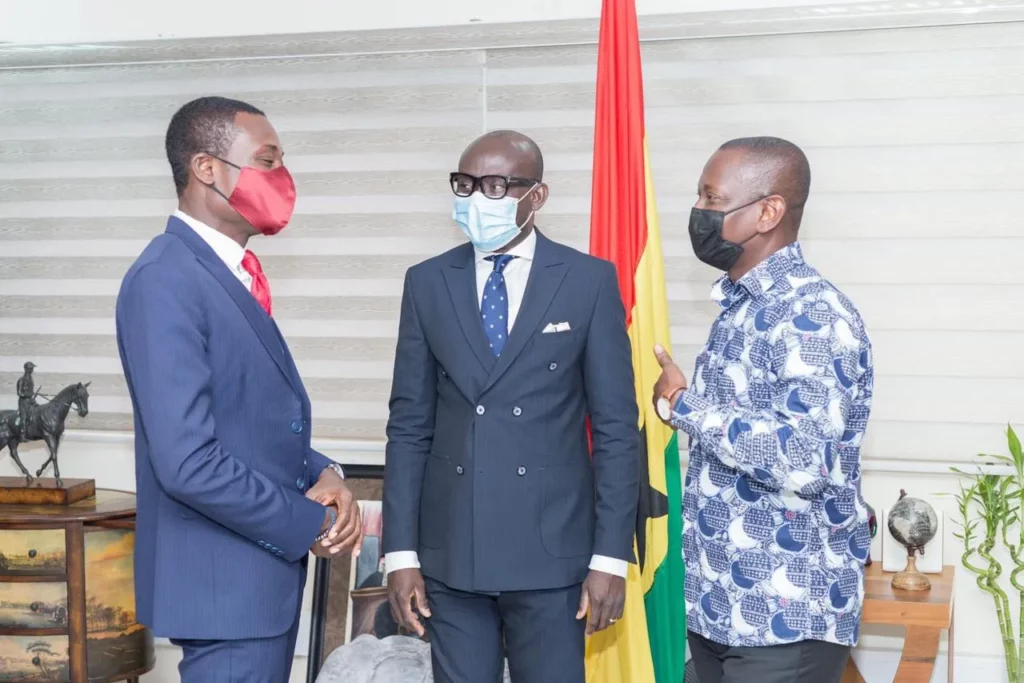Ghana’s Deputy Attorney General, Alfred Tuah Yeboah has sent a word of notice to the opposition National Democratic Congress over its position against the Supreme Court ruling dismissing the application against the First Deputy Speaker Joseph Osei Owusu.
Mr. Tuah Yeboah is of the view that he does not agree with the opposition party’s assertions that the Supreme Court ruling annuls standing orders 109 (3) of the parliamentary proceedings as unconstitutional which means that the standing orders 109 can no more be useful whiles the new ruling gives the two Deputy speakers the right to vote whiles they preside in the absence of the speaker.
The NDC believed that the ruling by SC infringes on the duties of the parliament.
However, speaking in an interview on Republic FM’s Anopa Dawuro with Kwame Koranteng on Thursday, March 10, the Deputy Attorney-General shot down the position of the NDC, saying he does not agree with the NDC.
“If you listen to what the NDC is saying, I don’t agree with them. Ghana laws, being headed by the President from the Executive angle allows anyone to go to court if they think a decision taken flown on the constitution. The same way parliament takes a decision and you do not understand, you go to court and so that argument of interference by the court against the parliament is not right,” he stated
Citing an illustration to back his argument, the Deputy Attorney-General stated that when a former speaker of parliament, Doe Adjaho was sworn in as President in the absence of the President and the vice. In that short time, the president traveled again, arguments were raised that he cannot be made to take in oaths again because the previous oath was still binding and permanent.
He noted that the case was taken to court and the Supreme Court ruled that what speaker did at that time was unconstitutional.
“If we can recall, Former speaker Edward Doe Adjaho was made president because substantive president and his vice were absent. Just after that, the president traveled again and arguments were raised about taking oaths, the parliament said no, the previous oaths was still binding and permanent. When the case was sent to court, the SC ruled that it was unconstitutional and reverted the decision by the parliament,” he recounted.
Moving further with his submission, Mr. Tuah Yeboah commended the Supreme and stating that the ruling by the SC is a victory for Democracy.
“What happened yesterday was a victory for Democracy. We all know the issues surrounding the current parliament and is whether the deputies of parliament has the right to vote whiles presiding or not, lot of people shared their thoughts, some said they have others said no”
However, Mr Tuah Yeboah revealed that the utmost power of the land is the constitution; and thus the constitution allows other laws to be made from the constitution but that very law does not mean to have a corresponding meaning to the constitution or to override the constitution.
The article 110 of the constitution allows the parliament to establish its standing orders to regulate and focus on its parliamentary proceedings.
Nevertheless, in that sense, he said, whatever meanings in the constitution is much bigger than what is outside the constitution, in effect, the constitution is the supreme law of the land.
He said, from the first to the last page of the constitution, no provision bars any Deputy Speaker from voting on the floor of parliament but insisted that the speaker is the only person who has no right to vote.
According to him, even if one is an MP and is being elected as a speaker, the constitution demands that the person vacate his seat whiles by – election is held to replace the vacant position because the speaker will not be allowed to vote.
In addition, he noted that as a Deputy Speaker, the constitution allows the retain of the seat because the deputies, if they are MP’s have the right to represent their constituents on the floor of parliament.
